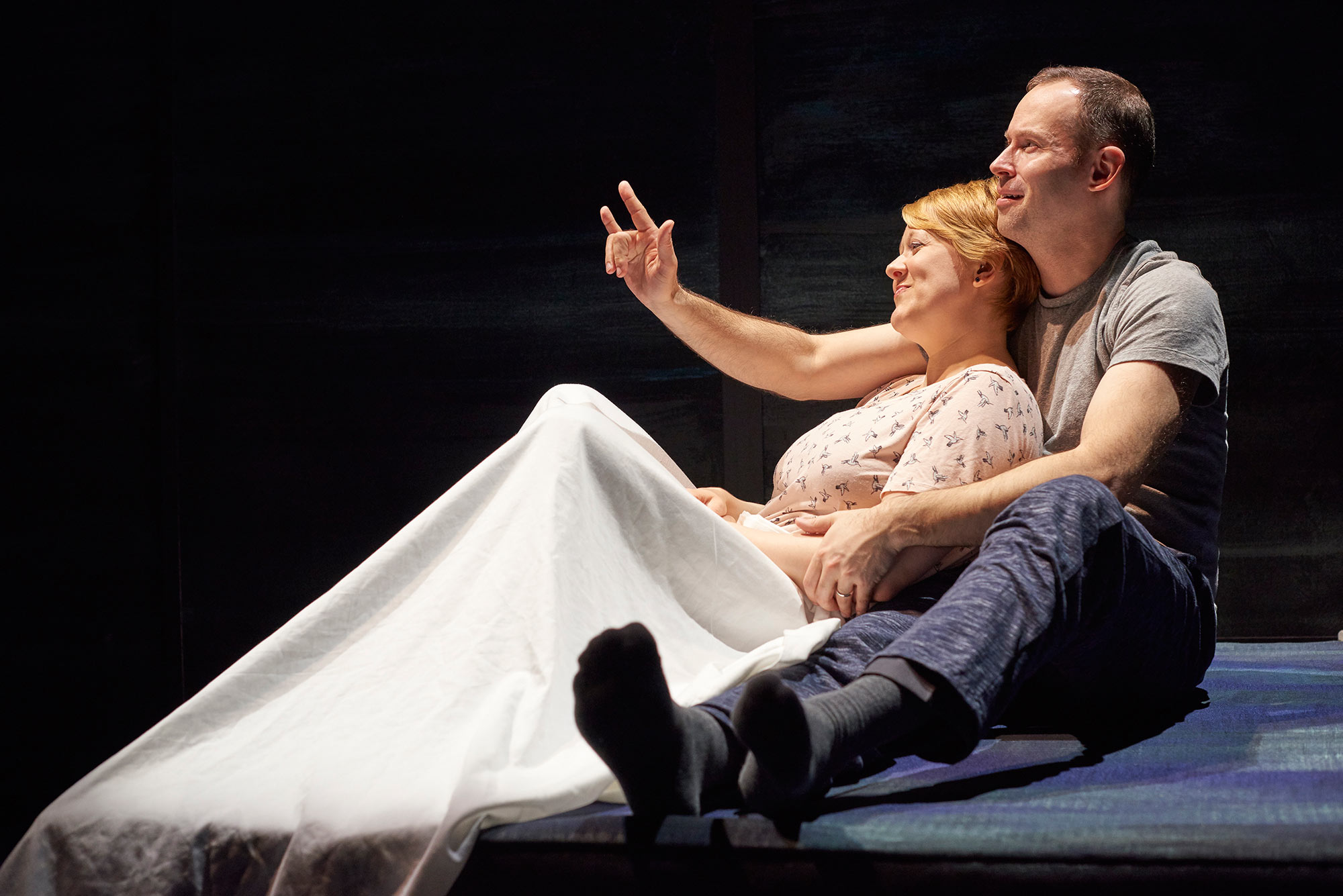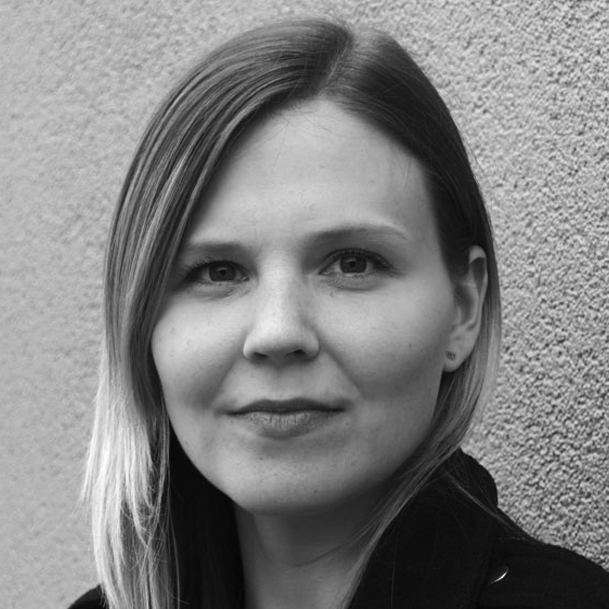The Undiscovered Country of Deafness
Last year deaf playwright Adam Pottle carried out an experiment on the streets of Toronto. When someone approached him to ask a question, he signed his answer. In one particular circumstance, a man in his twenties was asking for directions. When Pottle signed back, the man just walked away.
“They reacted pretty much how I predicted,” said Pottle.
The B.C. native, who now lives in Saskatoon, was born with impaired hearing in both ears. Growing up, he was bullied by kids who called him “deaf boy” and tested his lip-reading skills by mouthing “fuck you” to his face. Now, as a thirty-two-year-old, he said he is often dismissed by hearing people as soon as they find out he’s deaf.
“Sometimes if I’m meeting someone (hearing) for the first time, they think I’m from Ireland or Australia,” said Pottle, in reference to the slight accent in his voice. “When I tell them I’m deaf there’s a subtle look of disappointment. They’re expecting stories about a different country. The thing is, deafness is almost like a country. There are no borders or land but it’s a place that a lot of people inhabit. We have a different language, a different culture, different rules.”
Ultrasound, a new play written by Pottle and co-produced by Cahoots Theatre and Theatre Passe Muraille, is premiering this month at Passe Muraille’s Mainspace. The play is about a marriage between Alphonse, a man who’s profoundly Deaf (the medical term for someone with no hearing at all) and his Hard of Hearing wife, Miranda. Miranda isn’t fluent in ASL, making it difficult to communicate with Alphonse. She exacerbates the problem by regularly talking on the phone with her hearing sister and listening to heavy metal music. (Pottle is a devoted metal head himself.) Alphonse pushes her to be more involved with Deaf advocacy, but their conflicting values come to a standstill when Alphonse insists on a genetic screening to ensure their child will be deaf.
The play opens with Miranda speaking into a tape recorder. She voices a crippling fear of not being able to understand Alphonse on his deathbed. She’s afraid she won’t understand what his last words will be. Pottle said this comes directly from his own worries about his hearing wife, Debbie.
“My wife is taking ASL classes in preparation for old age. But that’s one of my greatest fears. I don’t want to have to dictate the way she chooses to say her last words,” said Pottle.
Identifying as capital “D” Deaf means the person recognizes themselves as culturally Deaf and fluent in American Sign Language, or ASL.
Like Miranda, Pottle, who describes himself as considerably deaf, straddles the worlds of the hearing and the d/Deaf. He is now totally deaf in his right ear, but has a small amount of hearing in his left. He is still learning ASL and will often rely on lip reading.
This kind of daily struggle with identity is the focus of Cahoots Theatre’s mandate: to be a home for the voice of the “other.” Cahoots is trying to ensure that d/Deaf theatre artists and audiences get a fair chance at being included in the theatre community. As a result, they have created an online guide called DATT: Deaf Artists & Theatres Toolkit.
Catherine MacKinnon, an award-winning film director and the co-founder of the Toronto International Deaf Film and Arts Festival, was Cahoots’s Deaf community consultant and ASL coach for Ultrasound. She was also part of the group that helped create DATT. MacKinnon believes more work needs to be done to incorporate d/Deaf artists in Canada.
“The common misconception is that we can’t. ‘Oh, you can drive?’ What? Yes, we can drive. In fact, we’re better drivers due to our sharp eye sight!” said MacKinnon, with a smile.
She offers clear ideas about how to welcome d/Deaf artists into the arts community. “It would be great if acting coaches provide access to ASL interpreters, or professional development training, to further our skills in acting. This is a huge barrier for us d/Deaf artists as many theatre companies do not know what to do,” said MacKinnon. She hopes the DATT will be a strong resource to help create more opportunities for d/Deaf artists, both actors and people who work behind the scenes.
Pottle, with Cahoots’s help, is breaking the mould for what is expected onstage: the two characters in Ultrasound were written for d/Deaf actors. But Pottle has made the play inclusive to all audiences by employing both ASL and speaking, as well as subtitles. “We have all the technology in the world. If you’re not communicating, you’re just being lazy,” said Pottle.
Ultrasound, Pottle’s first and only play, has been a venture into unfamiliar territory for him. He’s spent the last few years as a student in the Department of English at the University of Saskatoon. In February, he defended his PhD, “Deafness and disability in Canadian novels published between 1984 and 2007.” Currently, he’s working on a book about how deafness impacts his writing, which will be published by the University of Regina Press in 2018.
Pottle remembers the moment he wanted to be a writer. He was in high school and his favourite teacher, Dr. Ian Kluge, a “big, bald, burly, robust man,” read the class “The Tell-Tale Heart” by Edgar Allan Poe. “He told that story with so much gusto, I thought, ‘Holy shit! I want to try that too,’” said Pottle.
However Pottle chooses to express himself, whether through nonfiction or playwriting, it’s the unseen world of deafness—that other country in which he lives—that inspires him. And his deafness allows him to naturally tune out conversations and retreat into his imagination. “I’ve always been an imaginative child, much to the chagrin of my family sometimes,” he said with a chuckle. “I can look across the room and see two people talking and I’ll put words into their mouths and imagine the dialogue that’s happening between them.”
If theatre audiences are worried about not relating to Ultrasound, Pottle insists the main theme of his play is familiar to many people: miscommunication in marriage. He says it’s just one “particular brand” of miscommunication.
“The best art is something that creatively touches on the familiar, so there’s a way into it and there’s also something that’s fresh,” he said.
Pottle hopes his play can alleviate some of the fears hearing people have about deafness. He asks them to not turn away from it but instead step bravely into this undiscovered country.
“This play is going to show what’s possible. Just because a play has d/Deaf actors doesn’t mean it’s inaccessible to a hearing audience. Deafness and disability is great way of exploring new territory.”
Ultrasound is a co-production between Cahoots Theatre and Theatre Passe Muraille. It runs until May 15 at Passe Muraille’s Mainspace. For tickets or more information, click here









Comments